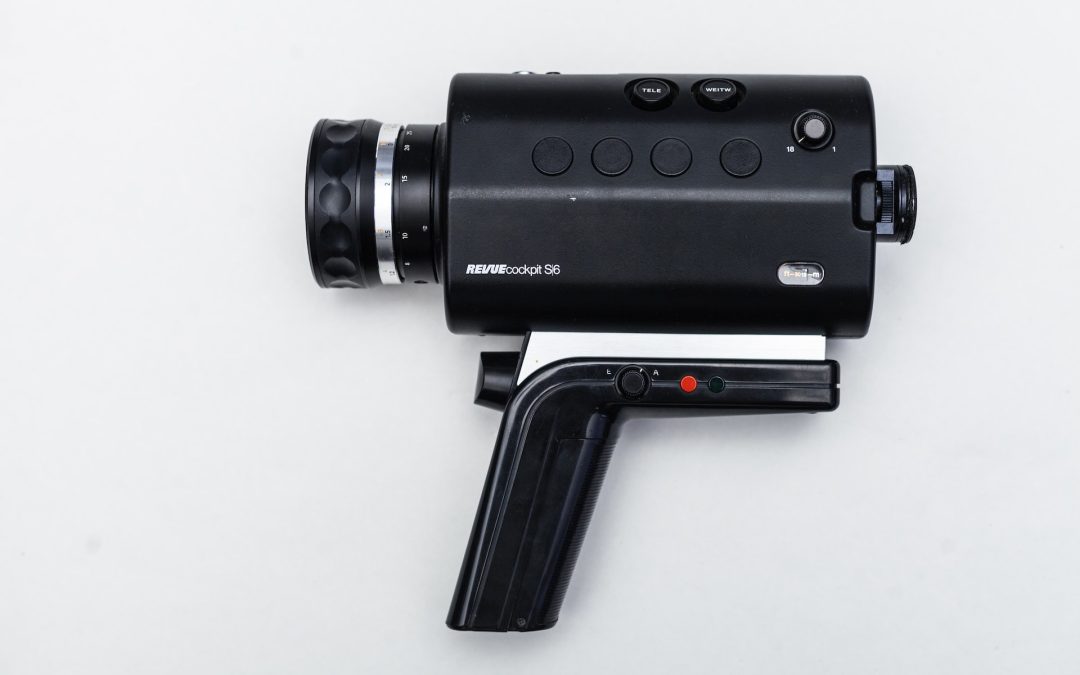If you owned a camcorder in the ‘80s and ‘90s, you might have hours of home movies that documented your life. Some people embraced their role as family documentarians and recorded graduations, weddings, baptisms, and various other family events. Now that the digital era has nearly wiped out the use of VHS tapes and DVDs, you might want to convert this footage for better long-term use. Too many families have memories locked away in old video formats that they don’t know how to access.
Fortunately, there are multiple video formats at your disposal if you want to digitize your memories. Here are a few options that you can choose from depending on your needs.
DVD
For many customers, the most natural conversion is from VHS to DVD. Even if your home movies aren’t stored in VHS format (we handle everything from 8mm to MiniDV), it makes sense for most people to transfer the footage to these discs.
This video conversion option is a good idea if you already have a DVD player in your home. Many households still have these systems even with the rise of video streaming. DVDs have stood the test of time and are even making a comeback with people ages 25 to 39. People enjoy having access to their favorite movies whenever they want – without seeing ads, paying for multiple streaming services, or potentially losing the movie if a service removes it. Even if you don’t have a DVD player currently in your home, you should be able to find one easily. Many computers also have DVD players built in.
We are happy to provide your first DVD for free if you choose this format. Additional DVDs cost $9 each. Most DVDs can hold two hours of footage and have 4.7GB of storage.
MP4
The digital age ushered in multiple video formats that are easy to store and share. One option instead of receiving physical DVDs is to digitize your home movies and save them as MP4 files. MP4 is similar to MP3 except that it is more modern and can store both video and audio files. Many of the videos on your smartphone could be saved as MP4 videos.
If you opt to convert your home movies to MP4 files, we will deliver them through the cloud. There is a $4 conversion charge per video, which makes this option cheaper than storing your memories on other video formats like DVDs. Once you receive your MP4 files, you can decide where you want to store them.
This is one of the video formats we most frequently recommend to customers because you will always have access to the content even as technology changes. You can store your MP4 files on a cloud service like Dropbox where you can share your home movies with others and watch them on any device. You can also store them on your hard drive if you don’t want to upload them online.
With this video storage method, you never have to worry about DVDs breaking and you won’t have to always own a DVD player to watch your home movies.
USB Drive
Not everyone wants to store their home movies on the cloud, which is why there are multiple video formats to choose from. Another option for storing your digitized home movies is on a USB drive – or multiple USB drives. These are also called thumb drives because they are roughly the size and shape of your thumb.
We recommend storing your video footage on USB drives if you have more than 10 tapes because you would otherwise need to buy multiple DVDs to view the content. USB drives start at $12 for our smallest option (8GB) and reach up to $65 for our largest model (256GB). For reference, a 16GB USB drive can hold around 10 hours of video. We will recommend a USB size based on the number of tapes you would like us to convert.
This is one of the more flexible video formats you can choose. You can transfer the files to almost any computer and upload them to the cloud. You can also take these files and save them on DVDs if you have that technology on your home computer.
The main drawback of USB drives is that they are small. Make sure you store your thumb drive somewhere safe, otherwise, you might accidentally lose it – and all of the memories you worked so hard to preserve.
External Hard Drive
If you have multiple boxes of home movies and aren’t sure which video formats can accommodate them, we have you covered. Instead of burning several DVDs or sending you multiple USB drives, our team can store your memories on an external hard drive, which has 1 terabyte (TB) of storage.
For reference, 1TB is 1,000 GB of storage, which means an external hard drive can hold the video content of nearly four of our largest USB drives. We often recommend this option for customers who have more than 40 tapes. We offer a flat price of $145 for an external hard drive, which is a much cheaper option compared to storing your video content on USB drives or DVDs.
If you have enough tapes to need a 1TB external hard drive, you will also save in other ways. We offer sliding-scale fees for customers who have large orders. A customer who only has 10 tapes to convert can expect to pay around $18 per tape. If you have more than 50 tapes to convert, our pricing drops $15 per tape.
This is why we recommend converting all of your home movies at once. By turning this task into a single project, you can save money in multiple ways and won’t have to worry about protecting your home movies in the future.
Choose the Right Video Formats for Your Needs
Once you have a clear picture of the video formats available, you can choose the best option for your home movies. Our team receives boxes of VHS tapes and other recordings every day that we process, digitize, and return to our customers. We are happy to scan your memories and save them in your desired format.
If you are ready, start your order with Memory Fortress today. You can also learn more about our video transfer service to see how we process and digitize your footage.

